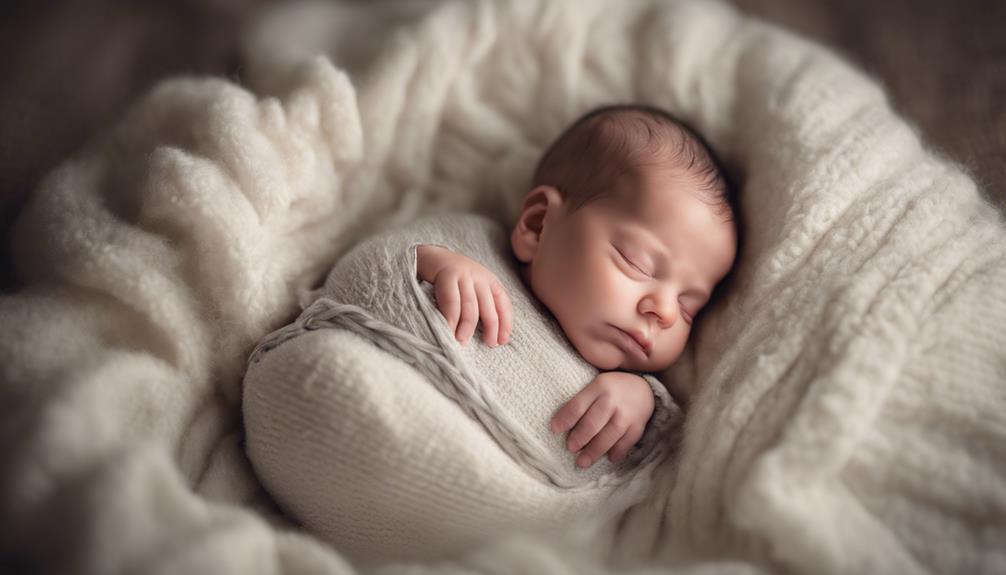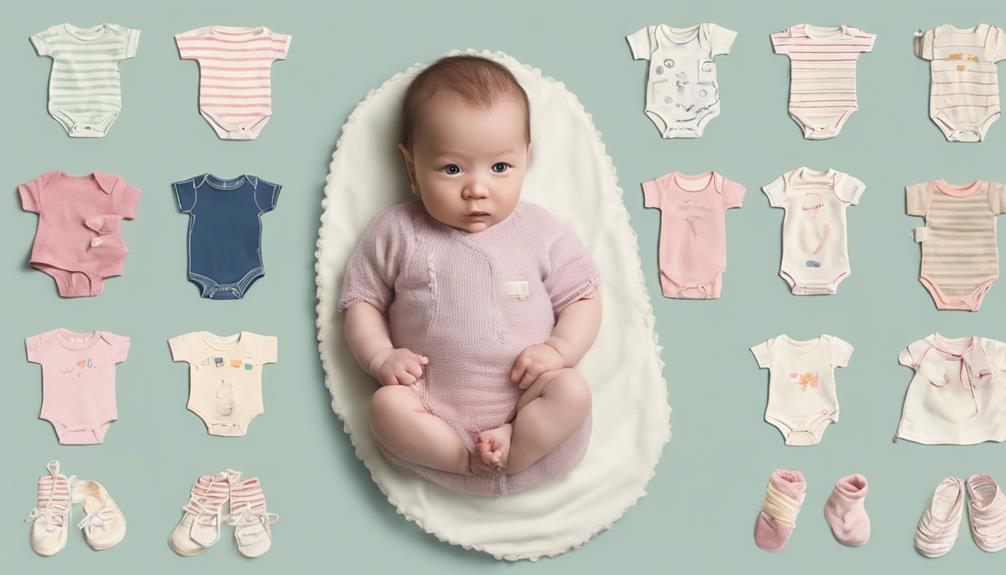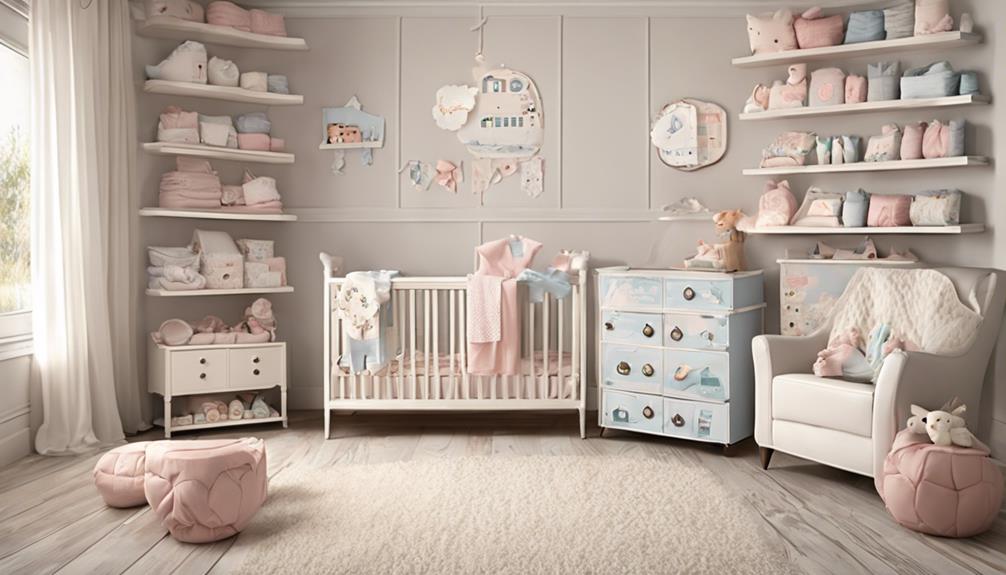If your newborn's hiccups seem as persistent as a stubborn visitor, you might be wondering how to ease their discomfort.
While those tiny hiccups can be concerning, rest assured there are simple remedies to help your little one find relief. From gentle burping techniques to soothing pacifiers, these strategies are worth a try.
But what if the hiccups persist, or there's more to know? Stay tuned to discover when it's time to seek professional guidance for your baby's hiccup troubles.
Key Takeaways
- Newborn hiccups are harmless and often resolve naturally.
- Burping and pacifiers can help alleviate hiccups.
- Prevent hiccups by offering smaller, frequent feedings.
- Seek medical advice if hiccups persist or cause concern.
Causes of Newborn Hiccups
Newborn hiccups can be triggered by various factors, often stemming from irritation to the diaphragm caused by quick feeding, a bloated stomach, or the Tonic Neck Reflex. Your little one's diaphragm, a vital muscle for breathing, might spasm quickly, resulting in those adorable hiccup sounds.
Sometimes, hiccups happen because your baby may have ingested air during feeding, experienced sudden temperature changes, felt stressed, or been overfed. Since newborns have immature digestive systems, hiccups are usually harmless and tend to resolve on their own. However, if those hiccups persist, it could be a sign of an underlying issue.
Keeping an eye on them, especially if they're accompanied by other concerning symptoms. Remember, even though hiccups are common and typically benign, paying attention to your baby's cues and seeking guidance from a healthcare provider if needed shows your dedication to their well-being.
Remedies for Newborn Hiccups
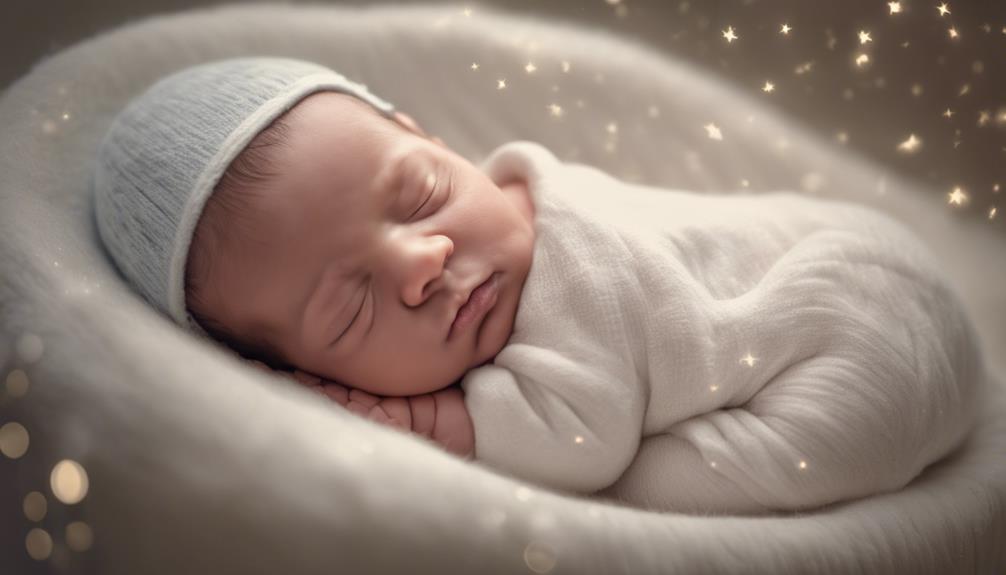
Using gentle burping techniques can be effective in releasing excess gas and alleviating newborn hiccups. When your baby experiences hiccups, try burping them to help eliminate any trapped air that might be causing discomfort.
Additionally, offering a pacifier can help relax the diaphragm, potentially stopping the hiccups. Remember, it's normal for hiccups to stop on their own within 5 to 10 minutes, so allowing them to pass naturally is often the best course of action.
While gripe water is commonly used for digestive troubles, it isn't recommended specifically for hiccups without clinical evidence supporting its effectiveness.
Creating a calm and soothing feeding environment can also aid in preventing hiccups in newborns. By keeping feeding sessions relaxed and minimizing distractions, you can help reduce the likelihood of hiccups occurring.
Prevention Tips for Baby Hiccups
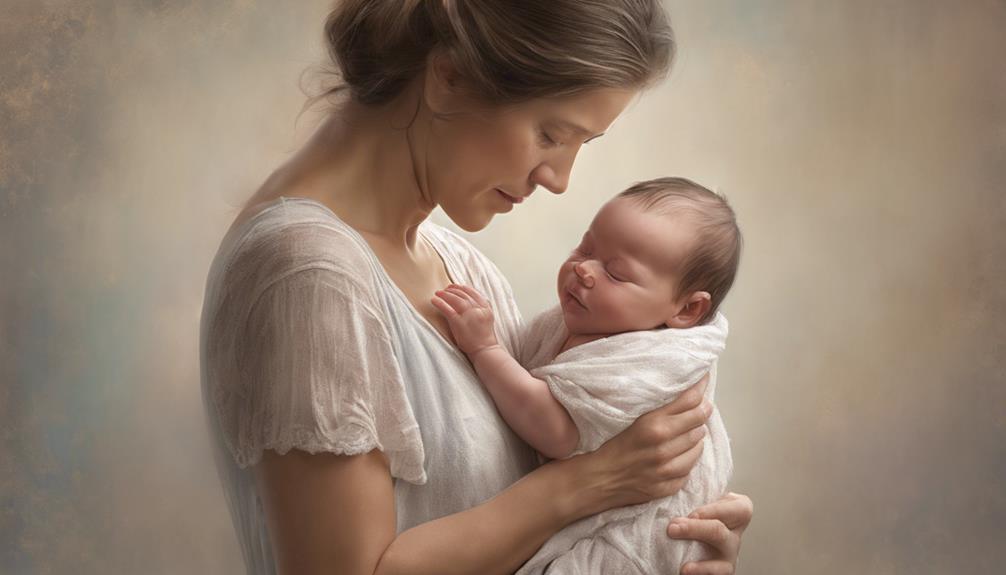
When caring for your newborn, implementing these prevention tips can help reduce the occurrence of hiccups in your baby. Feeding plays a significant role in triggering hiccups in babies. To prevent this, offer smaller and more frequent feedings to avoid overloading your baby's diaphragm with air. Taking breaks during feeding sessions to burp your baby gently can release trapped air and reduce the chances of hiccups. Keeping your baby upright after feeding helps the food settle properly, decreasing the likelihood of hiccups. Monitoring the timing of hiccups can also help you identify triggers, such as certain feeding positions or amounts. Here's a handy table with some prevention tips for baby hiccups:
| Prevention Tips | Description |
|---|---|
| Offer smaller feedings | Prevents overloading the diaphragm with air |
| Take burp breaks | Releases trapped air during feeding sessions |
| Keep baby upright | Aids in proper digestion and minimizes hiccups |
| Avoid overfeeding | Reduces increased air intake and hiccups |
When to Seek Medical Advice
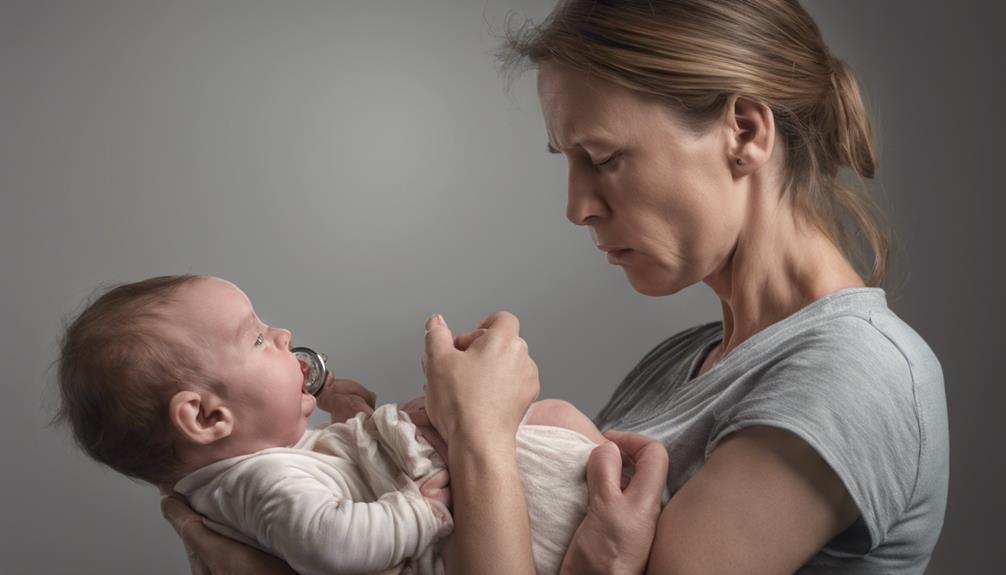
If your baby's hiccups persist for more than 10 minutes, seeking medical advice is recommended. While hiccups are common in newborns and usually harmless, persistent hiccups that don't seem to stop could be a cause for concern.
If your baby experiences hiccups accompanied by vomiting or other concerning symptoms, it's important to consult a healthcare provider. Medical attention may be necessary if the hiccups start to impact your baby's feeding or sleep patterns.
Persistent hiccups in newborns could potentially indicate underlying health issues that require evaluation by a pediatrician. If you notice an increase in the frequency or intensity of your baby's hiccups, or if you have any worries about how the hiccups are affecting your little one, don't hesitate to reach out to your pediatrician for a consultation.
Your baby's well-being is important, and your healthcare provider is there to help address any concerns you may have.
Summary and Conclusion
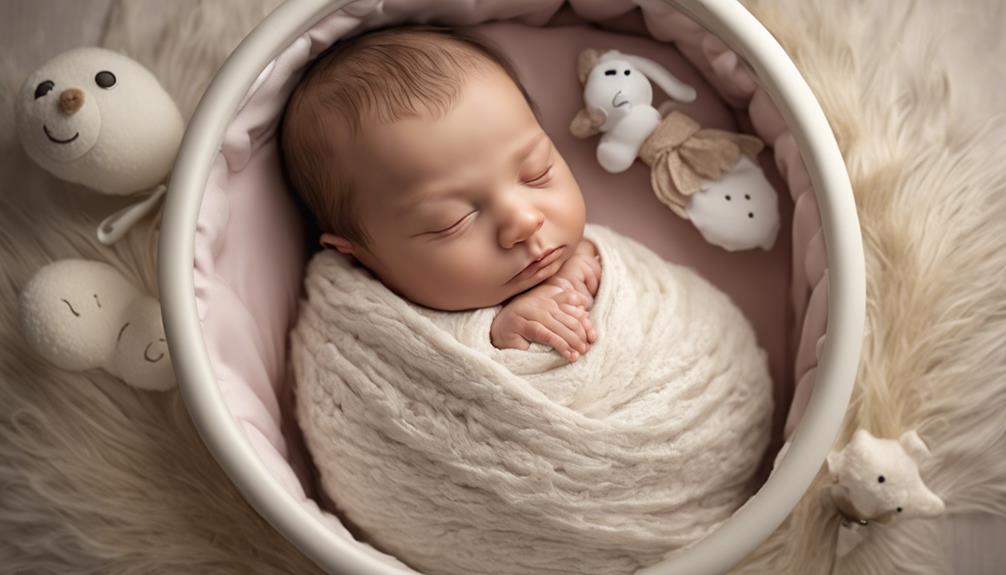
Should your baby's hiccups persist or become concerning, it's important to understand how to effectively manage and alleviate them for your little one's well-being. Newborn hiccups are generally harmless and tend to resolve on their own within a short time frame. Remedies such as burping, offering a pacifier, or gently rubbing your baby's back can help stop the hiccups.
Creating a calm feeding environment and making sure not to overfeed your baby can also aid in preventing hiccups. However, if the hiccups are frequent, persistent, or accompanied by other worrisome symptoms, seeking medical advice is important to rule out any underlying issues. Understanding the causes and remedies for your baby's hiccups can empower you to provide the necessary care and comfort.
Frequently Asked Questions
What Helps Get Rid of Hiccups for Newborns?
When your newborn gets hiccups, gently burp them after feeding or offer a pacifier to relax their diaphragm. Let hiccups fade naturally in 5-10 minutes. Create a calm feeding environment; avoid gripe water. Trust your instincts and enjoy bonding moments.
Is It OK to Lay Baby Down With Hiccups?
It's perfectly fine to lay your baby down with hiccups if they're not bothered. Most babies sleep well with hiccups. Stick to your usual sleep routine. Keep your baby safe during sleep, no matter what.
What Stops Hiccups Quickly?
When hiccups strike your newborn, burping, offering a pacifier, changing positions, or gently rubbing their back can swiftly bring relief. Trust that hiccups usually pass within 5 to 10 minutes as your baby's diaphragm settles.
How Do You Get Rid of Hiccups in a Newborn Position?
To help your newborn with hiccups, hold them upright after feeding to prevent stomach contents from coming back up. Keep them calm and avoid sudden movements. Gently pat or rub their back to release trapped air and ease hiccups.
Conclusion
To sum up, newborn hiccups are common and usually harmless. Remember to try gentle remedies like burping and using a pacifier to help ease your baby's discomfort.
Did you know that on average, newborns experience hiccups up to 4 times a day? Stay calm and create a soothing environment during feedings to prevent hiccups.
If hiccups persist or cause concern, don't hesitate to seek medical advice for peace of mind. Your baby's well-being is always a top priority.
